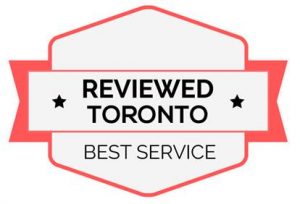
Corporate owned life insurance Expert
Watch our on-demand training and find out how you can benefit from borrowing against Corporate owned life insurance.
Corporate Owned Life Insurance (COLI) refers to life insurance policies that are purchased by a corporation on the lives of its employees, with the corporation as the policy owner and beneficiary. Corporate owned life insurance offers tax advantages and significant benefits for businesses, ensuring comprehensive coverage and financial protection. Enhance your corporate strategy with policies that provide for both employers and families, leveraging the full potential of this insurance solution.
Corporate-owned life insurance (COLI) offers many benefits to businesses. It provides financial protection by covering key employees, ensuring business continuity through key person insurance. This form of executive life insurance is a strategic tool in business planning, securing funds from insurance proceeds for various needs. Employers can also use these policies to offer benefits to top executives, fostering loyalty and retention. In essence, corporate-owned life insurance acts as a business life insurance strategy, providing financial stability and aiding in long-term planning.
One of the significant tax advantages of corporate-owned life insurance is the potential for tax-free proceeds. Companies can channel these proceeds into the capital dividend account, allowing shareholders to receive tax-free dividends.
Additionally, the insurance's inside buildup grows without being taxed, offering a preferable tax rate compared to other corporate profits. Permanent life insurance also ensures that the company avoids capital gains taxes on the policy's growth. Overall, the integration of COLI into corporate tax planning can result in notable tax savings.
Corporate-owned life insurance plays a pivotal role in business planning. It aids in estate planning and supports buy-sell agreements, ensuring smooth succession planning. Business continuation insurance funded through COLI secures financial resources to maintain operations during transitions.
Split-dollar life insurance arrangements allow companies to share premium costs with employees. Such strategies ensure corporate financial security and facilitate seamless business transitions. Lastly, shareholder agreement insurance can protect stakeholders' interests, making COLI indispensable in comprehensive business planning.
Businesses have several options when it comes to corporate-funded life insurance policies. The main types include permanent life insurance, which provides lifelong coverage, and term life insurance, offering protection for a specific period. Key person insurance is vital for protecting the company against losses stemming from the death of essential personnel.
COLI policies also encompass business partner insurance, ensuring partners can buy out shares if necessary. Executive bonus life insurance is another option, helping to retain top talent. These varied corporate life insurance plans cater to diverse business needs, enhancing overall financial resilience.

Before purchasing corporate-owned life insurance, businesses must look at several critical factors to get the best coverage and financial benefits:
Each of these points is key in making the decision and affects the overall benefit to the business.
Corporate ownership can change life insurance premiums and payouts:
Corporate ownership lets businesses use life insurance to cover debts, fund buy-sell agreements, and manage leadership changes smoothly.

Corporate-owned life insurance (COLI) policies in Canada must follow specific regulatory requirements. These include complying with Canadian tax laws and ensuring that corporations abide by guidelines set by authorities. Companies need to align their insurance practices with legal frameworks to avoid penalties.
Key regulatory considerations include:
Corporations should consult legal and financial experts to navigate these complexities effectively, maintaining both compliance and the advantageous positioning of their COLI policies.
Ensuring compliance with tax laws related to life insurance involves several steps:
By implementing these practices, corporations can manage their compliance effectively and maximize potential tax benefits from their life insurance policies.

Experts recommend several strategies to maximize the value of corporate-owned life insurance:
By following expert advice and applying these strategies, corporations can fully leverage the benefits of corporate-owned life insurance in their overall business plan.
Bullet Points
—

One benefit of having Corporate-Owned Life Insurance is the fact that payment of premiums is done with corporate profits after tax, whose taxation rates are much lower than the personal shareholder’s tax rate. Notably, the rate of corporate tax applicable to functional business earnings in the province of Ontario is roughly 15% and 50% to investment earnings. In Ontario, the highest personal rate of marginal tax is roughly 53%.
Another benefit is that when death comes, the deceased person is considered to have disposed of all their capital property at fair market value at the moment of death. This deemed disposition rule also relates to shares of a corporation. The Income Tax Act asks to evaluate the insurance policy based on the cash surrender value at the moment before death. Generally, this value is going to be less than what the policy would pay in case of death, in addition to being notably smaller than the property’s value that probably would have been stockpiled by the company if it hadn’t bought the policy. As a result, acquiring life insurance will also help to reduce the tax that is payable in case of death with respect to shares that are owned by a private company because it will result in a reduced valuation for all those corporate shares that didn’t have life insurance purchased.
Although there exists numerous benefits and at the same time, flexible strategizing opportunities when acquiring and utilizing life insurance via a private company, there exists a list of additional items that should be considered. Corporate tax complexities, shareholder agreements, accounting and compliance in respect to capital dividends.
At Ascendant, we have Chartered Accounting, Trust and Estate Planning Advisors and expertise to make sure the planning is done accurately and that compliance and administrative items are all addressed.

Watch our on-demand training and find out how you can benefit from borrowing against Corporate owned life insurance.








©2023 Ascendant Financial All Rights Reserved | Terms & Privacy Policy | DMCA
© 2023 Ascendant Financial Inc. All rights reserved.
The supporting material, audio and video recordings and all information related to Introduction to Becoming Your Own Banker, The Infinite Banking Concept (IBC) posted on www.ascendantfinancial.ca and all other Ascendant Financial Inc. websites are designed to educate and provide general information regarding The Infinite Banking Concept (IBC) and all other subject matter covered. It is marketed and distributed with the understanding that the authors and the publishers are not engaged in rendering legal, financial, or other professional advice. It is also understood that laws and practices may vary from province to province and are subject to change. All illustrations provided in these materials are for educational purposes only and individual results will vary. Each illustration provided is unique to that individual and your personal results may vary. Because each factual situation is different, specific advice should be tailored to each individual’s particular circumstances. For this reason, the reader is advised to consult with qualified licensed professionals of their choosing, regarding that individual’s specific situation.
The authors have taken reasonable precautions in the preparation of all materials and believe the facts presented are accurate as of the date it was written. However, neither the author nor the publishers assume any responsibility for any errors or omissions. The authors and publisher specifically disclaim any liability resulting from the use or application of the information contained in all materials, and the information is neither intended nor should be relied upon as legal, financial or any other advice related to individual situations.
Family Banking System (FBS)™ is a trademark of Ascendant Financial Inc. © Ascendant Financial Inc., 2024. All rights reserved. The phrase “Live the Lifestyle, Love the Process, Infinite Banking” is a registered copyright (Registration No. 1209863) with the Canadian Intellectual Property Office. Unauthorized use, reproduction, distribution, or copying of this phrase, in whole or in part, without express written permission from Ascendant Financial Inc. is strictly prohibited. This copyright is protected under Canadian intellectual property laws and regulations. Any unauthorized use is subject to legal action and enforcement under Canadian law. For inquiries or requests for permission to use this copyright, please contact Ascendant Financial Inc.
The Infinite Banking Concept® is a registered trademark of Infinite Banking Concepts, LLC. Ascendant Financial is independent of and is not affiliated with, sponsored by, or endorsed by Infinite Banking Concepts, LLC.”
This content is intended for Canadian residents of BC, AB, SK, MB, ON, NB, NS, NU, YT, PEI & NFLD only.